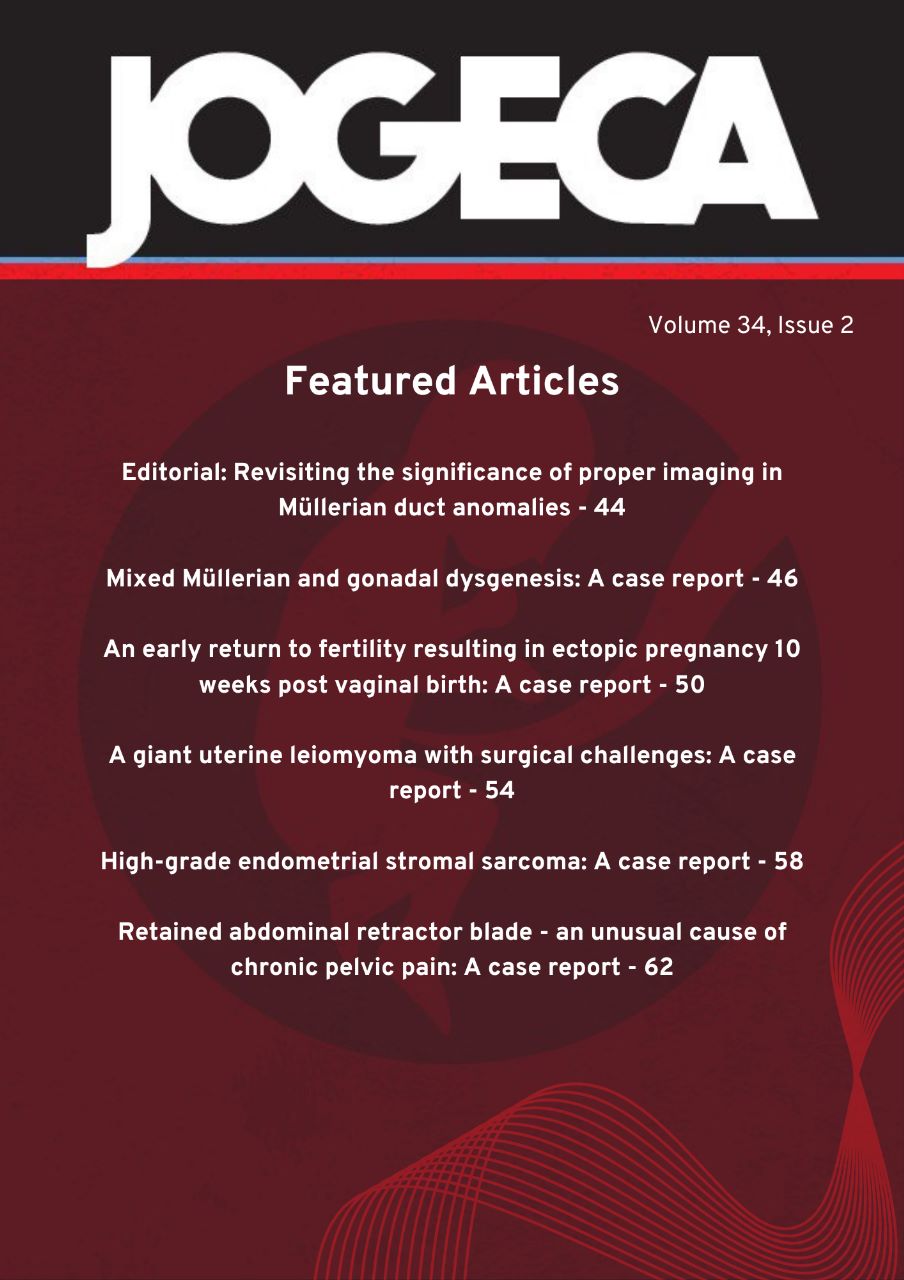Rhesus isoimmunization: An underappreciated reproductive risk
DOI:
https://doi.org/10.59692/jogeca.v35i2.36Keywords:
Rhesus, isoimmunization, sub-Saharan AfricaAbstract
In sub-Saharan Africa, pregnancy-related complications are a significant contributor to morbidity, mortality, and rising healthcare costs (1). The membrane of human red blood cells (RBCs) may contain the Rhesus (Rh) antigen. There are several types of Rh antigens but most important is the RhD antigen. Along the whole RhD protein, a group of conformation-dependent epitopes make up the D antigen. The most clinically significant blood group antigens that determine whether fetomaternal blood compatibility exists are the RhD and ABO systems (2). While the D-negative phenotype is linked to a deletion of RHD in most Caucasians, it is uncertain why the D antigen is not expressed other populations like the Japanese and Africans where it is linked to a grossly normal RHD (3). Accordingly, if a mother is Rh D-negative and the fetus is Rh D positive, she may produce antibodies through a process called RhD sensitization if she is exposed to fetal antigens. Sensitization is unlikely to damage the index fetus in normal conditions, but it may result in recurrent pregnancy losses, an infant with sensitized RBCs or to severe types of hemolytic disease of the newborn presenting with jaundice, anemia, developmental problems, or stillbirth (4).
Rhesus isoimmunization can be prevented, but most Sub-Saharan African countries have not fully utilized these opportunities. As a result, many women are at risk due to poor medical records following potentially sensitizing events and a lack of access to crucial diagnostic and therapeutic commodities. These have significantly increased the difficulty of managing Rh-negative pregnancies (5).
There has been a contentious suggestion for the universal prophylactic use of anti-D immunoglobulin in all pregnancies, including those following termination or ectopic pregnancy (6). We know that only a few at-risk women will profit from this strategy, which will unquestionably be highly expensive. However, there is no question that the Rh-negative pregnant population of Africa needs to have access to anti-D immunoglobulin on a global basis (7)(8). It follows that appropriate strategies should be instituted to effectively identify at-risk women and treat them accordingly (9).
Leaders in obstetrics practice from various African countries met towards the end of last year to discuss the unmet need to address the burden of Rhesus disease. They noted that, despite being entirely preventable, Rhesus disease was identified as one of the roadblocks to achieving maternal universal health coverage. The team recommended all stakeholders to facilitate access to anti-D immunoglobulin and screening tools for widespread screening and treatment.
Downloads
Published
How to Cite
Issue
Section
License
Copyright (c) 2023 Journal of Obstetrics and Gynaecology of Eastern and Central Africa

This work is licensed under a Creative Commons Attribution 4.0 International License.




